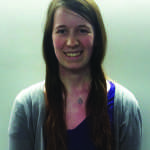Tucked in the basement of Schofield is an office that sends UW-Eau Claire students all over the world: the Center for International Education. However, there are some countries that university students don’t have the option to go to.
Until recently, Cuba was on that list.
Due to past political relationships between the United States and Cuba, the country has been essentially inaccessible to Americans. For this reason Eau Claire has never offered students to indulge in what CIE director Karl Markgraf described as the “rich learning environment from the cultural and language perspective” until now.
If student interest is high enough, the university will offer its first trip to Cuba during winterim 2014. At this point CIE has not seen an overwhelming amount of interest in this new program, Markgraf said, but they are optimistic that a sufficient amount of applications will be turned in before the April 1 deadline and the trip will go on as planned.
Without enough interest, Markgraf is unsure of what will come of the program.
“The application deadline is April 1 and right now we do not have enough applications to really give us a lot of confidence that it is going to go forward,” Markgraf said. “But the program has not been officially canceled.”
Markgraf’s excitement about this opportunity for students and faculty comes from the rarity of American’s ability to travel to the Caribbean island.
“It’s kind of been a missing piece in the whole array of study abroad programs for any American,” Markgraf said. “American universities, students, faculty are very interested in that rich learning opportunity in Cuba, so we’re excited to begin to offer some study abroad opportunities in Cuba.”
Markgraf is not alone in his enthusiasm for the opportunity to travel to Cuba. Senior political science and Latin American studies major Stephannie Regenauer is among Eau Claire students that are interested in Cuba. Regenauer, however, may be one of the few that has already been there.

As part of her Latin American studies major, Regenauer is required to study abroad. During a meeting with her advisor she expressed interest in going to Cuba, not thinking it would ever happen due to the lack of a program.
However, in January her hopes of indulging in Cuban culture and history became reality when she studied in Havana through UW-Stevens Point’s program.
“Everyone was just very nice and outgoing. They were really fun. They would say, ‘Don’t worry, it’s a war between our governments, not us — we love Americans,’” Regenauer said.
In the many possible destinations students who study abroad can pick from, Regenauer said there are a few things that make Cuba unique.
“I think because it has been so untouched by American influence,” she said. “It’s such a process to get there right now with the travel ban; you have to apply for a special permit through the treasury department so I know if I wouldn’t have gone with the university I wouldn’t have been able to go on my own.”
This exclusiveness is what first intrigued junior Alison Burdick-Evenson to this opportunity.
“Cuba has had such a difficult history with the U.S. and we’ve always kind of been told, ‘You’re not allowed to go there.’ So when I first saw the signs to go there I thought this is a once in a lifetime thing, we’ve never been able to do this before,” she said.
Burdick-Evenson has since decided not to go on the trip after hearing from others about the lack of interest.
Priority deadline to apply for the trip is April 1, but will be extended to May 1 if enrollment is not met by the first deadline.






